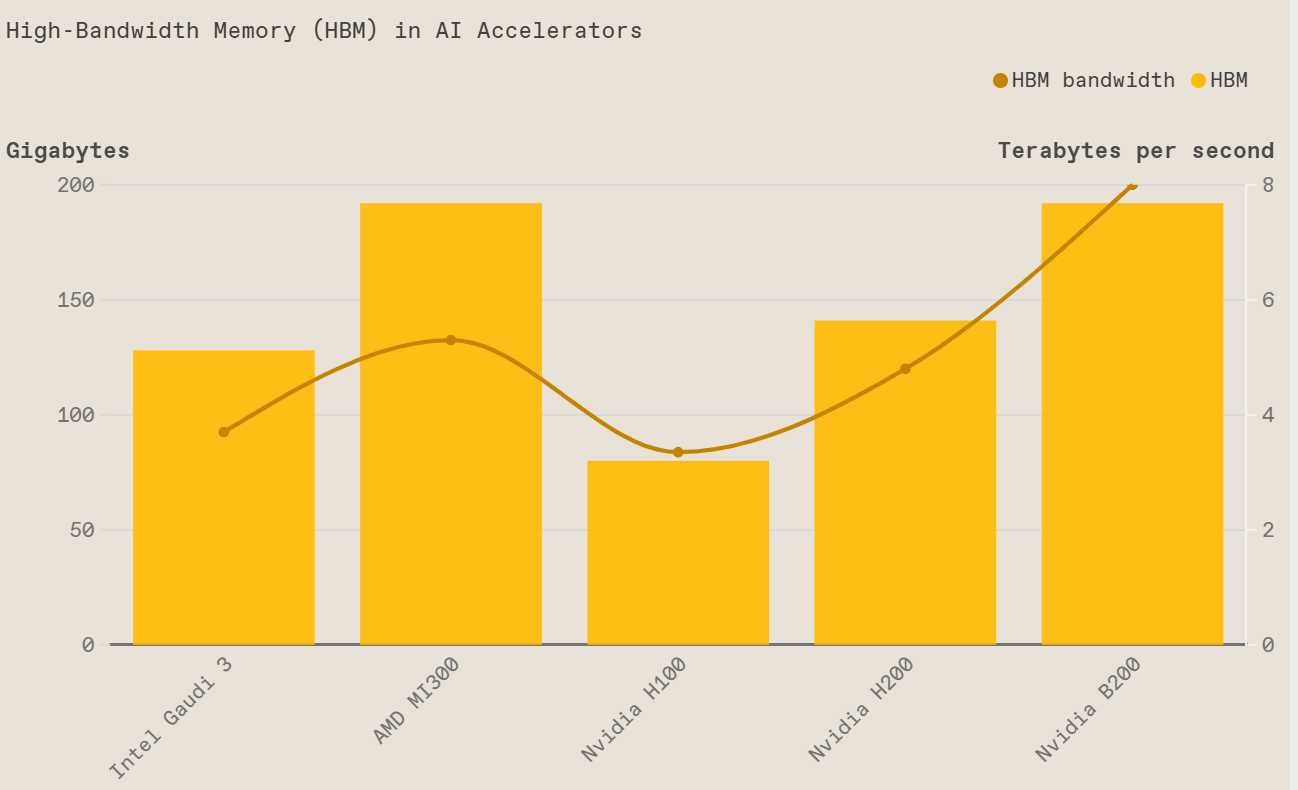Intel's Gaudi-3, Meta's Artemis, Google's Axion, TSCM and South Korea in the Spotlight
Semiconductor leaders by Revenue, broken down into Tiers.
Hello Everyone,
This is an issue for the week of April 11th, 2024.
This is one of my “new” Newsletters, and over 10+ now covering various aspects of emerging tech. Thanks for the support, I hope to learn along with you about these topics.
Welcome to the 7th edition of Semiconductor Things™, where I seek to break down some of the news in the Semiconductor, AI chips and datacenter space globally to make it more accessible and easy to follow.
With the rise of Generative AI, Nvidia and TSMC and the geopolitical importance of Taiwan, this is now a major topic of me in my watching of the emerging tech space that I do as an analyst, writer, curators and news watcher.
The Technology category is an underdog relative to Substack’s baseline audience, this means I’m an outlier here. To survive, I’m building 10+ Newsletters in “emerging tech” coverage. A pilot never seen before on Substack for a one-person team. Full disclosure, I may not make it.
Importe note: I am not native to the Semi space, and it might take a while to get up to speed. So we’ll be effectively learning about these things together.
So much happens in a given week now in the semiconductor and AI chip space, coverage will remain like an approximation of events, and I hope it covers a broad scope. Share it with someone you know who might appreciate if if you think I do a fair job.
When to Expect this Newsletter ⏰
This Newsletter will typically go out on Thursday at 7am Eastern Time. Posts are partially paywalled and paid subscriptions are cheap.
What? It will attempt to summarize some of the most important news in the semiconductor industry of the last week.
Intel Launches Gaudi-3
Intel announced its own AI chip comparable to the H100, here. It looks like Intel’s acquisition of Habana Labs back in December, 2019 has really paid off.
Gaudi Architecture Evolution
Gaudi 3 doubles down on its predecessor Gaudi 2’s architecture, literally in some cases. Instead of Gaudi 2’s single chip, Gaudi 3 is made up of two identical silicon dies joined by a high-bandwidth connection.
Hard to trust Inte’s internal benchmarks but it’s fun to speculate on it though.
I did a deep dive on this news here:
Intel’s Gaudi-3 is not expected to hurt Nvidia’s H100 or Blackwell platform chip sales.
Semiconductor Bits & Bites 📱 ~ Part I
Is the AI chip shortage over? The shortage of Nvidia GPUs may finally be ending, media report, citing the head of Dell Taiwan, Terence Liao (廖仁祥), who reportedly said Dell’s delivery times for AI servers has returned to a normal 8-12 weeks from over 40 weeks after the GPU supply notably improved in February. He said demand for AI servers in Taiwan is strong.
Apple is heavily dependent on Taiwanese firms: Apple has doubled the output of iPhones assembled in India to US$14 billion from $7 billion last year, or about 14% of all iPhones, as it shifts out of China, Bloomberg reports, citing unnamed sources. Taiwan firms made most of them, with Foxconn at nearly 67%, Pegatron 17% while Wistron sold its iPhone plant to India’s Tata Group last year, and Tata made the rest.
Intel on the Turf war assault: Intel has engaged TSMC’s supply chain partners in a bid to further develop its foundry prowess, DigiTimes reports, citing unnamed sources, and noting many of the Taiwan firms have worked closely with TSMC for decades. Some of these firms say Intel is more rigorous than TSMC in all aspects of business, including product verification, etc. They include: Gudeng Precision, E&R Engineering, Kinik, Chang Chun Group, LCY Chemical, GlobalWafers and more.
Google’s Axion
Google has announced its first ARM-based CPU.
Google Axion Processors, are their first custom Arm®-based CPUs designed for the data center. At its Cloud Next conference in Las Vegas on Tuesday, the company said the new processor will become available later in 2024.
It’s not so impactful but could be useful for some of their Google Cloud Customers. The company plans to run YouTube ad workloads on the Axion Arm chips once they’re available.
Meta’s New Homegrown Chip - Artemis 🔬
Meta Platforms Inc. is deploying a new homegrown chip to help power its artificial intelligence services, aiming to decrease its reliance on semiconductors from Nvidia Corp. and other outside companies.
Meta was a major customer of Nvidia’s H100 in 2023. Now this is the next generation of Meta’s custom-made chips designed for our AI workloads. . The chip, referred to internally as “Artemis,” will supposedly help Meta reduce its reliance on Nvida’s AI chips and reduce its energy costs overall it said.
The new Meta Training and Inference Accelerator (MTIA) chip is part of a broad custom silicon effort at the company that includes looking at other hardware systems too. Meanwhile Microsoft, Amazon and Google are doing much the same with their own home-grown and custom chips, which might impact Nvidia’s revenue over time in the second half of the 2020s.





